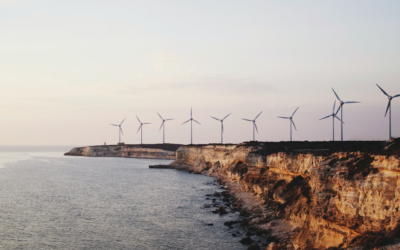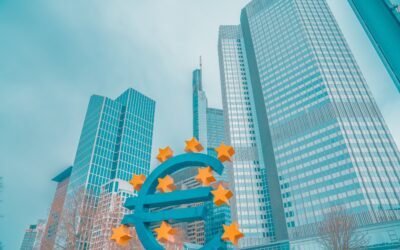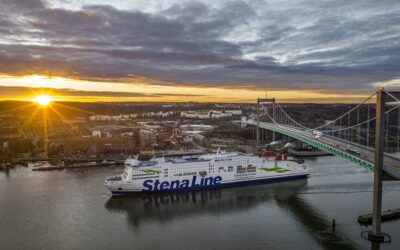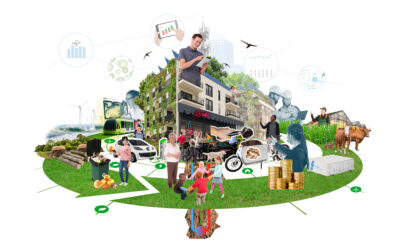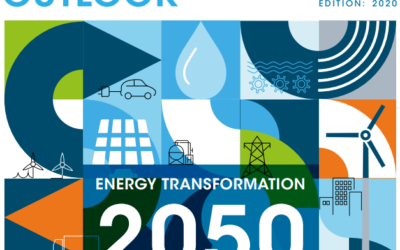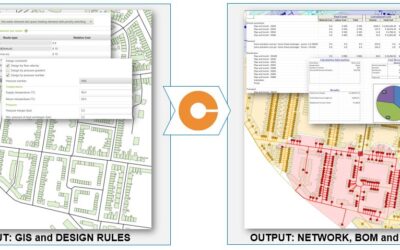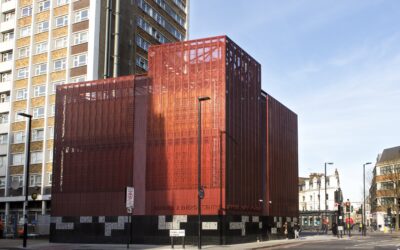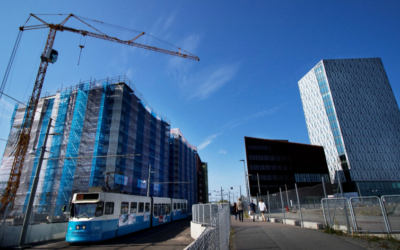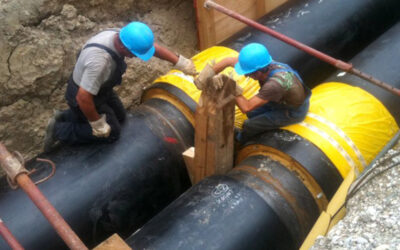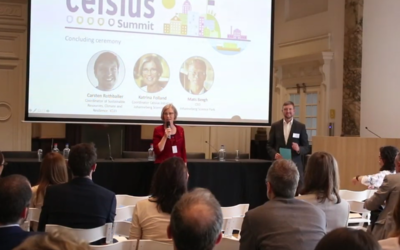Alexandroupolis, a seaside municipality in Greece’s northeast coast is going to have cost-effective geothermal energy and heating soon.
As the world keeps looking to sustainable energy solutions, geothermal energy exploration can be essential for those countries with access to it. In the next 18 months, Greece will implement and complete a new project to explore the Antheia-Aristino low-enthalpy geothermal field near the city of Alexandroupolis.
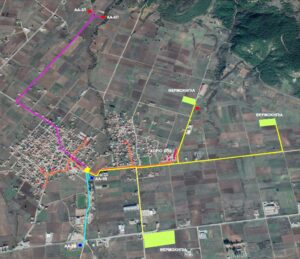
Alexandroupolis geothermal energy system
Geothermal fluid of more than 90 ⁰C
Geothermal energy is obtained through heat derived within the sub-surface of the earth from water and/or steam carrying geothermal energy to the surface. Depending on its characteristics, geothermal energy can be used for heating and cooling purposes or be harnessed to generate clean electricity. However, electricity generation can only be done in areas located close to tectonically active regions. The Antheia-Aristino field is considered as one the most important geothermal fields located in Greece, mainly due to the availability of geothermal fluid of more than 90 ⁰C temperature and its potential for exploitation.
Part of IRIS Smart Cities
Unlocking this low-enthalpy geothermal field is considered as the most important objective of Alexandroupolis’ strategic plan towards a resilient low-carbon local economy. Alexandroupolis is the administrative centre of the Regional Unit of Evros and constitutes an interconnection gate between Mediterranean and Asian countries. This beautiful seaside city is working with a network of smart and sustainable cities (including Gothenburg, Utrecht & Nice) to accelerate deployment and improve performance as part of their work in IRIS Smart Cities.
The investment
The investment for the construction of the geothermal district heating network amounted to 6.2 million Euro. The project was eligible for funding by the ERDF Regional Operational Programme 2014-2020 of Region of East Macedonia and Thrace, which financed 95,31% of it. The remaining 4,69% was invested by Municipality’s own capital.
The first step of the exploitation of the available geothermal energy
It was a long journey for Municipality of Alexandroupolis to finally secure a lease for the exploitation of the geothermal field. The project includes the development of a geothermal district heating network that will provide heat for municipal buildings, social housing and greenhouses with a total thermal power estimated at 10 ΜW. It is considered as the first step of the exploitation of the available geothermal energy since the Municipality aims to expand the geothermal district heating network to residential buildings and potential industrial consumers.
Working within IRIS, Alexandroupolis and other fellow cities have identified extensive insights on barriers and drivers in flexible energy management and storage as part of the “Replication Roadmap”. This was developed as part of the project to benefit from in-depth peer-2-peer exchanges with frontrunner cities.
Lessons learned
The lessons learned during the development of the project highlight the increased effort and time required for completing studies and licensing. Accounting for time and expenses in licensing is an important point to raise when considering the replicability of geothermal projects in other regions and cities.
Webinar: Financial instruments and success cases
This webinar provided a European perspective on financial investment, from EU’s Urban Agenda Energy Transition Partnership to success cases and transparent green bonds to minimize the risks.
Smart integrated energy project joins the Celsius Initiative
The Horizon 2020 project FlexiGrid joins the Celsius Initiative, benefiting from the great network of integrated energy stakeholders.
Looking at Financing – success stories, challenges and solutions
During the May 2020 Celsius Talk will discuss the barriers cities encounter when looking to finance sustainable energy efficient projects, such as…
Bankability of urban excess heat recovery investments
We summarize some key points from RINA’s analysis of the bankability of urban excess heat recovery investments (from the H2020 Reuseheat project).
Gothenburg, a pioneer in green bonds
This article provides a short introduction to green bonds, using the first city in the world to use green bonds (Gothenburg) as an example.
Positive Energy Districts and Neighbourhoods Call for Proposals
Positive Energy Districts and Neighbourhoods may serve as a crucial contribution to achieve climate and energy targets. This call focuses on exchange of experience between ambitions and initiatives already going on.
European City Facility launches call for proposals
The European City Facility (EUCF) will launch its first call for proposals. All municipalities (local authorities) and their groupings from the EU-27 and UK are encouraged to apply to get support in developing an investment concept and accelerate the implementation of their energy and climate action plans.
IRENA’s Outlook Shows Path for Resilient Economies
The Global Renewables Outlook shows the path to create a sustainable future energy system. This flagship report highlights climate-safe investment options until 2050, the policy framework needed for the transition and the challenges faced by different regions.
Webinar: Low temperature district heating
Low temperature district heating can prove to be an important part in also keeping the globe’s temperature low. This webinar presents some of the opportunities and challenges cities may encounter in their endeavour towards a sustainable and efficient low temperature district heating systems.
Public Consultations for Spring and Summer 2020
In the upcoming weeks and months, a number of public consultations are scheduled with relevance for the Celsius cities. While we will reply to these…
Automated planning and design tool for DH networks
Speed up the planning process and build a solid business case with Comsof Heat, an automated planning and design tool for district heating…
Looking for best practices in efficient DHC
The Directorate-General for Energy of the European Commission (DG ENER) has awarded an ambitious study which will provide a thorough, in-depth…
Forerunner groups helping cities implement solutions
Cities face many difficulties in their ambition to cut carbon emissions through the optimisation of heating and cooling solutions. The challenges…
Bunhill 2 Energy Centre is now up and running!
Waste heat from the London Underground network is now capable of providing heating and hot water to more than 1,350 homes, a school and two leisure…
Sustainable reformation for a growing population
Better aware end-users, more heat-recycling and more biofuel, are required steps for Gothenburg to become a fossil-free city, especially with the…
Why should we waste freely available heat?
ReUseHeat offers free pre-feasibility studies on urban waste heat recovery!
A new era for heating in Croatia
Zagreb has started to install large-scale solar collectors as well as geothermal energy.
Celsius Summit 2019: Satisfy the energy needs in a sustainable way
The yearly conference of the Celsius Initiative took place in Brussels in October.


